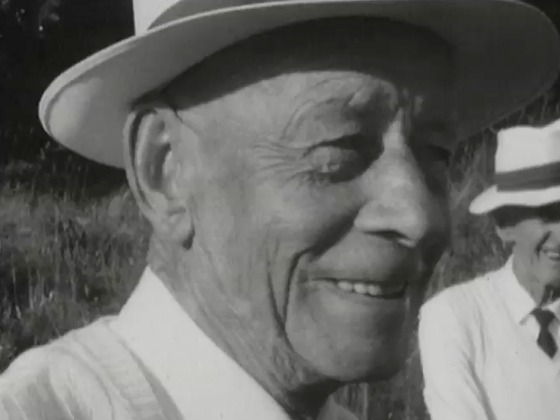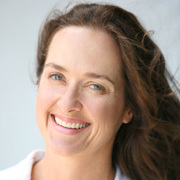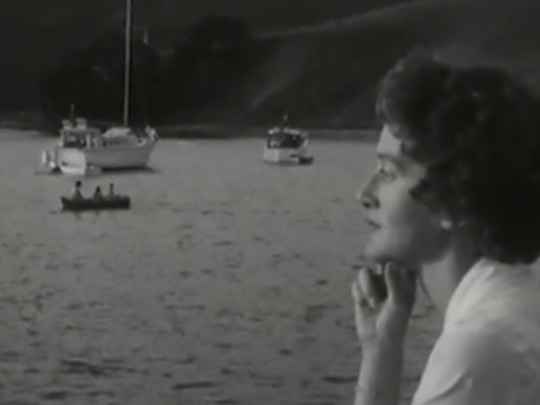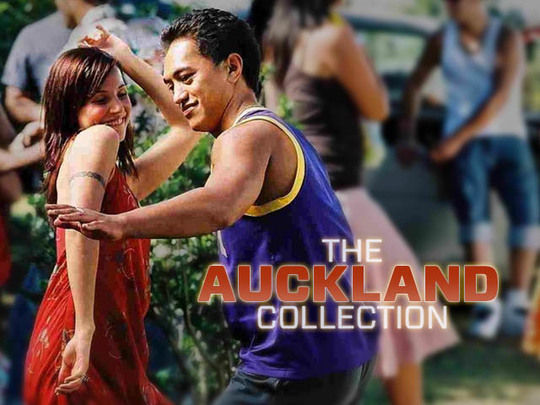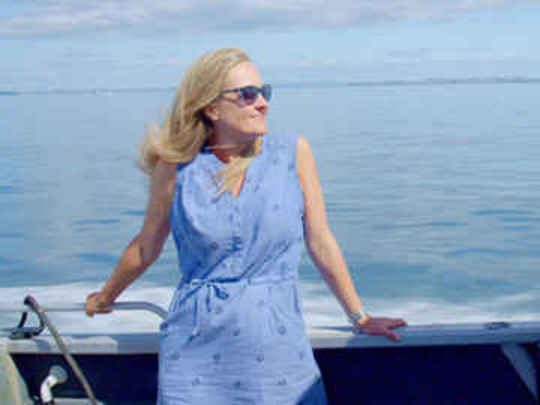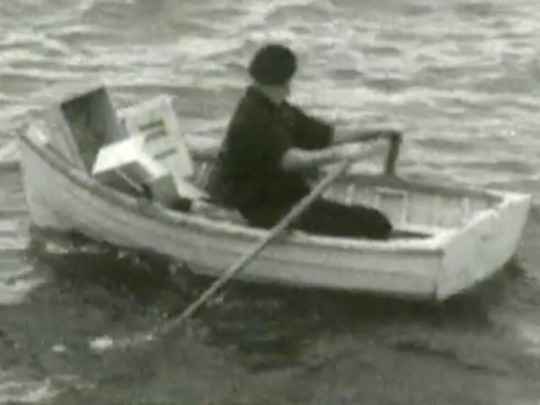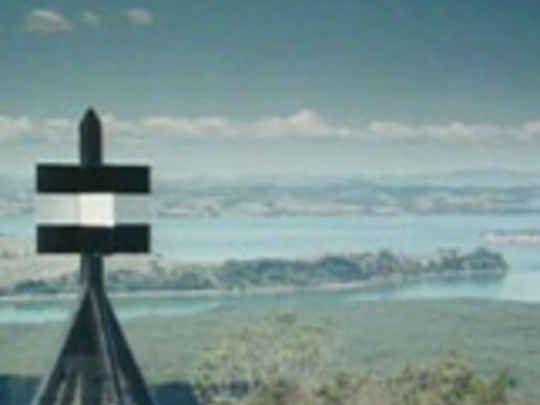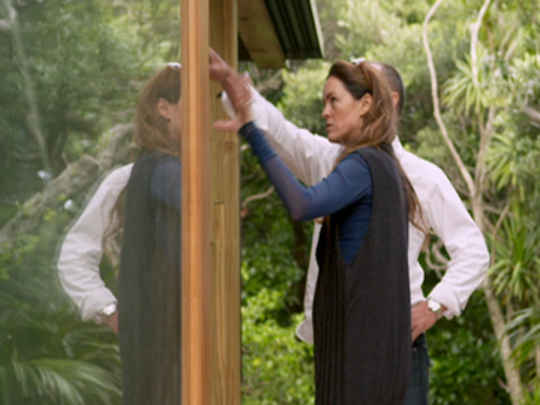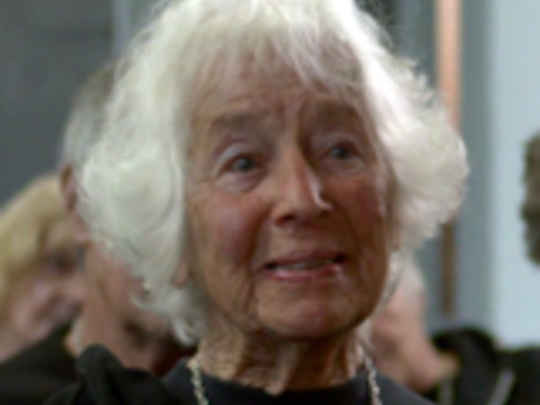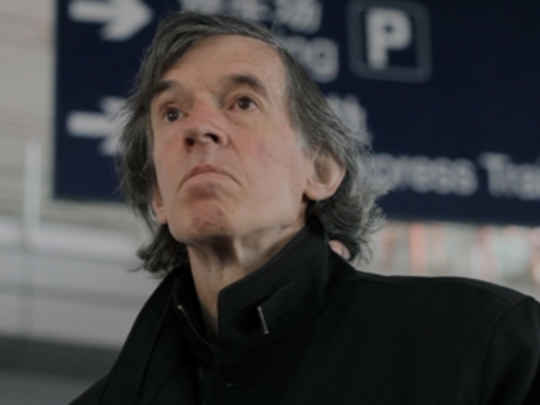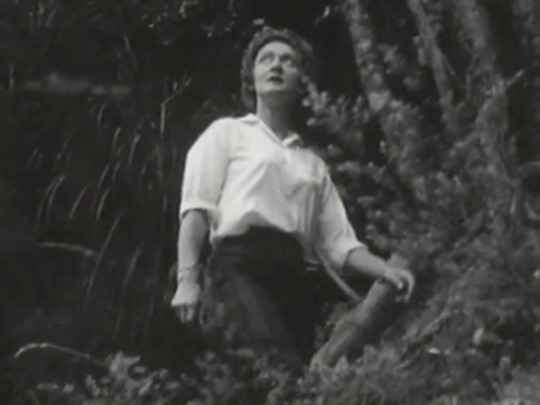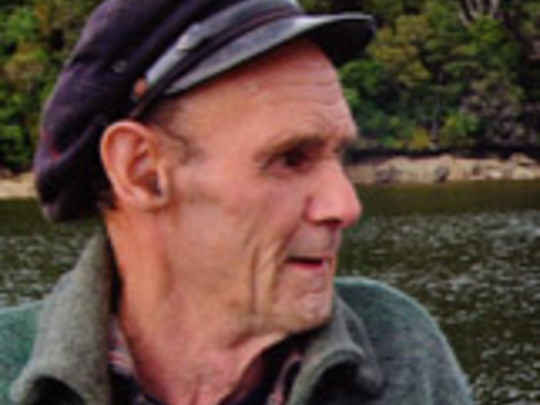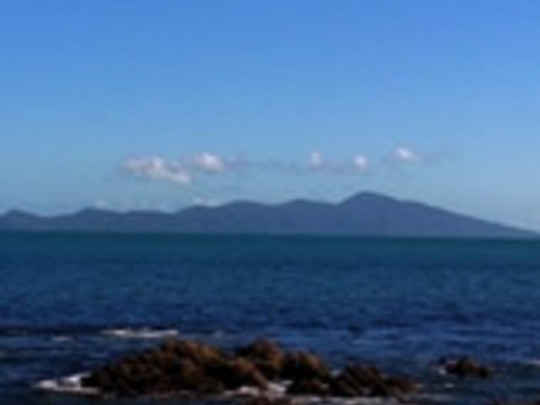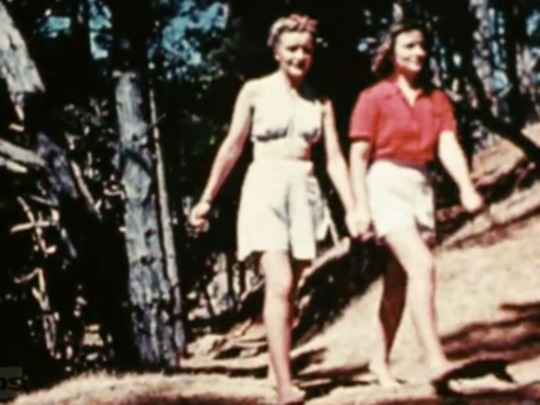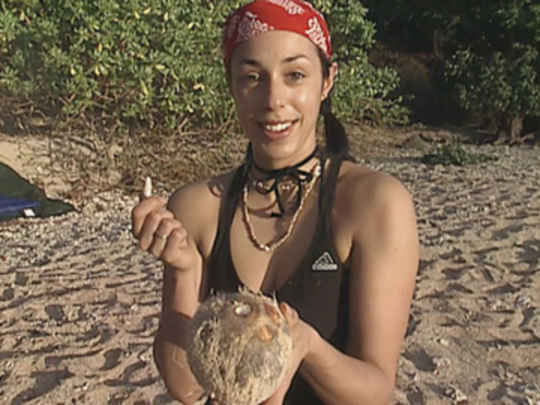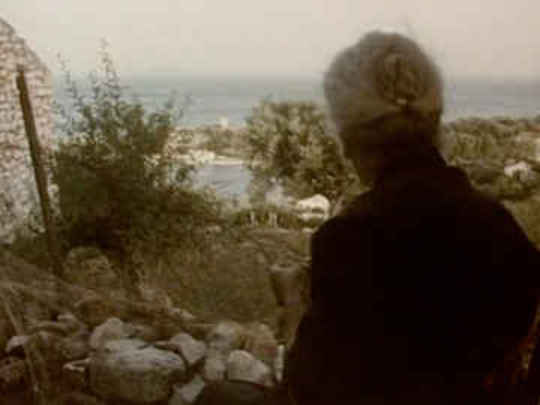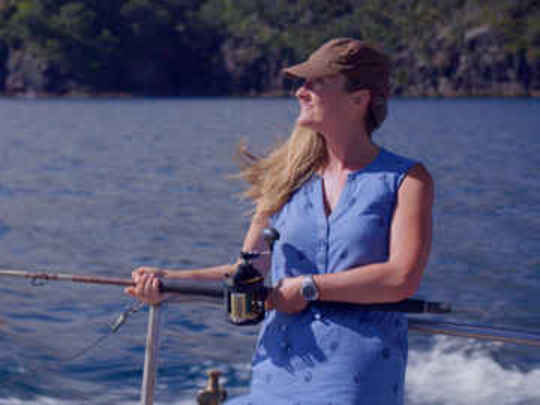Islands of the Gulf - Waiheke Island
Television (Full Length Episode) – 1964
Islands of the Gulf
Elisabeth Easther wrote this as the foreword for the 2017 version of book Islands of the Gulf, by Shirley Maddock and Don Whyte. Thanks to Elisabeth Easther & HarperCollins Publishers for permission to republish.
In 1964 the pioneering broadcaster Shirley Maddock explored the Hauraki Gulf by boat, in Landrovers, on foot and by seaplane with the legendary Captain Fred Ladd. Making the groundbreaking documentary series Islands of the Gulf, she turned the camera’s attention on people and places that had previously been tucked away. And what she discovered on her travels was that the island dwellers who shared their stories and lives were not just resilient and resourceful, they were also incredibly endearing and, occasionally, even eccentric. And the people watching at home loved every black and white minute.
But Islands of the Gulf was more than just a television series, it was the first production of its kind to be made by what was then called the NZBC, the NZ Broadcasting Corporation, now TVNZ. And what’s more, it was made by a woman — a woman who not only presented the show, she also wrote, produced and directed it. But she had to fight quite hard to be acknowledged as a producer, because in the 1960s women weren’t allowed to have such lofty aspirations. But Mum did, which meant that after some pushing and shoving she became the first woman in the country to be officially acknowledged as a Television Producer, a title that our state broadcaster had previously reserved for men.
And because Mum found way too much material to squeeze into five half-hour programmes she also wrote a book to accompany the series and thanks to her vibrant, lively text, coupled with Don Whyte’s lush photographs, Islands of the Gulf was an instant bestseller. Enjoying numerous reprints, it still finds pride of place on bookshelves in baches and on boats all over the gulf and beyond.
* * *
Fifty-three years later, I’ve been following in my mother’s intrepid footsteps and, in the course of making a new series of Islands of the Gulf for TVNZ, I’ve been rewatching and rereading her material with an eagle eye, and what has struck me every day, time and again, is just what a brilliant woman my mother was. Her writing, every single page and phrase, just astonishes me; she had such a wonderful way with words and her delightful manner was the perfect catalyst for drawing people’s stories out.
Shooting all over the gulf this summer, I’ve tracked down some of the people (or their relatives) who were in the original series and in the book. In the Great Barrier episode, Mum follows the district health nurse Pia Makiha when she visits a new baby on the island — and possibly that was another television first: full-frontal nudity. Tracking Baby Raewyn down to Waiheke, we took her back to her family home on Aotea (Great Barrier) to talk to her about her feelings for the show, knowing my mother had met her before she could possibly remember. Proudly, Raewyn still has her Plunket book from that visit where a note remarked in capital letters: TELEVISED. Raewyn also told me how she wrote to my mother when she was twelve years old, because it was important to her, knowing she’d been on television when she was so small. Somehow the letter not only made it to my mother, but Mum wrote a kindly letter back. And that was Mum all over. Not only was she terrifically talented, she was also terrifically kind.
Another character from the past was Bob Burns, a man who had the prescience to suggest that if the ferries to Waiheke become any faster, Waiheke would become a dormitory suburb of Auckland. And while Bob has been gone for many years, his son Jim came and spoke to me in the exact same spot my mum interviewed his dad all those years ago, at the end of the old Matiatia wharf. And we both agreed it was incredibly moving to be talking about our respective parents all these years later and to have a way of seeing our respective parents walking and talking so many years after they’d died.
Growing up, I was well aware that Mum had been famous before her three children came along, and that she was accomplished in many fields — not just as a writer and a maker of television but also as a radio broadcaster, an actress and even a co-creator of the Official Information Act of 1984, one of her more unusual jobs. But I don’t think I paid the attention to her work then that I am now and I’m so sorry I didn’t because, aside from not being able to tell her again how amazing I think she is (I did tell her but most likely for other things like tucking me in or baking birthday cakes) today I’d dearly love to ask my mother:
How did you do it?
What was it like in the field?
How did you know what to do?
How many people went on your shoots? How did it work technically?
How much time did it take?
I want to watch the entire series with her sitting beside me and ask a million questions. And I know how lucky I am to have her text to use in voiceovers. When I struggle for the best way to describe something, I turn to her book and pick out beautiful little phrases. I am so grateful to be able to do that and have it be collaboration, not plagiarism.
There are many passages in this book that bring a lump to my throat. There’s a passage where Mum talks to a Mr William McElroy from Mahurangi whose life will now never be forgotten, but the bit that most moved me was when he surmised that Mum would have grandchildren. As a childless woman in her 30s back then, it wasn’t necessarily a given.
“They weren’t all hard days, you know. People helped each other. Life was simple, so good, not what you can count up, just treasure in your mind.” Then he gave me my nugget of kauri gum, choosing it carefully from a collection arranged along the chimneypiece. “Put it where the sun strikes,” he said, “and tell your grandchildren, when you have them, that once you talked to an old man who remembered the days when they dug the kauri gum.”
Another passage that never fails to move me is when Mum is flying with Captain Ladd over Rangitoto. And when we were aloft Fred handed me a small white cardboard box.
“Hold that, will you?” he asked. It was remarkably heavy for its size. “It’s some ashes,” he explained. “A man from Maungaterkauri asked in his will if he could be scattered over Rangitoto because of the happy times he spent there in his youth.”
I sat with the man from Maungatekauri in my lap. “The wind’s more your way Shirley,” Fred was saying. “Do you mind opening your window and letting him go that side?”
Don was loading his film in the rear of the pane and his window did not open. “My side?” and I looked at the window and back at the box.
“Perhaps I’d better then,” said Fred and kindly took the box away.
“It’s a bit awkward but we’ll manage.”
We were directly over the summit now and Fred opened his window, covered the top of the box with his handkerchief and gently let our ghostly fellow passenger go off into the slip-stream.
“There,” and Fred closed the window. “So be it.”
We all sat in silence for a minute and I reflected on the awfulness of mortality and remembered the piece from Cymbeline about golden lads and girls all must like chimney sweepers come to dust.”
* * *
While making the new show, we toyed with the idea of spreading Mum’s ashes as part of the story, to sprinkle her in various places that were special to her. But it didn’t feel right, I couldn’t take her away from my father. Mum’s urn lives on the dressing table in my dad’s bedroom — and they were such a good match. They met late in life for those times, were married at 36 and 37 respectively, and when they first met it was love at first sight. Dad was so proud of Mum’s work but it won’t be till he’s gone that I could contemplate putting Mum to rest. They need to be together in death just as they were the most wonderful couple in life.
For all sorts of reasons this book stands the test of time and I am thrilled it is being reissued in all its magnificent glory, because I want current and future generations to enjoy the snapshots my mum took of a time and place, to remember these remarkable Gulf people.
Remaking my mother’s series, I’ve been so proud to follow in her wake, to find out how things have changed and what’s stayed the same, to share with a wider audience how incredible, by necessity, island people are. Of course a fair bit has changed, but island people remain ostensibly the same. House prices have definitely risen, and the wedding scene on Waiheke would’ve been hard to imagine in Mum’s day (the current record is 22 in one day), but as a rule these characters still have to be resourceful, ready to help their neighbours in times of need even if their reason for living on an island is to find solitude.
And most of all, I dearly wish my mother was alive today so I could tell her how proud of her I am. So she could see how her work still had currency all these years later. Mum would have been 89 this year, but she died in 2001 at the age of 72 — cardiomyopathy, that’s what took her away.
But if I could talk with her again, what I’d want to say would be: “Goodness, Mum, but you were astonishing weren’t you? And while I had an inkling all those years ago, it’s really only dawning on me now just how talented and clever you were. And I miss you. Not a day goes by when I don’t miss you.”
- Elisabeth Easther is a actor, presenter, journalist, and award-winning playwright, who still gets recognised for the time she played a murderous nurse on Shortland Street.
